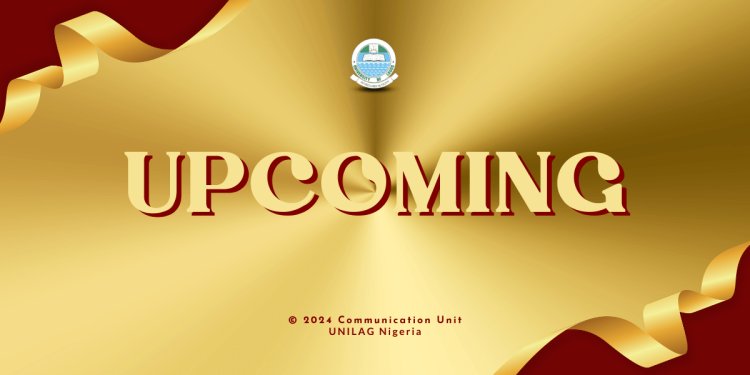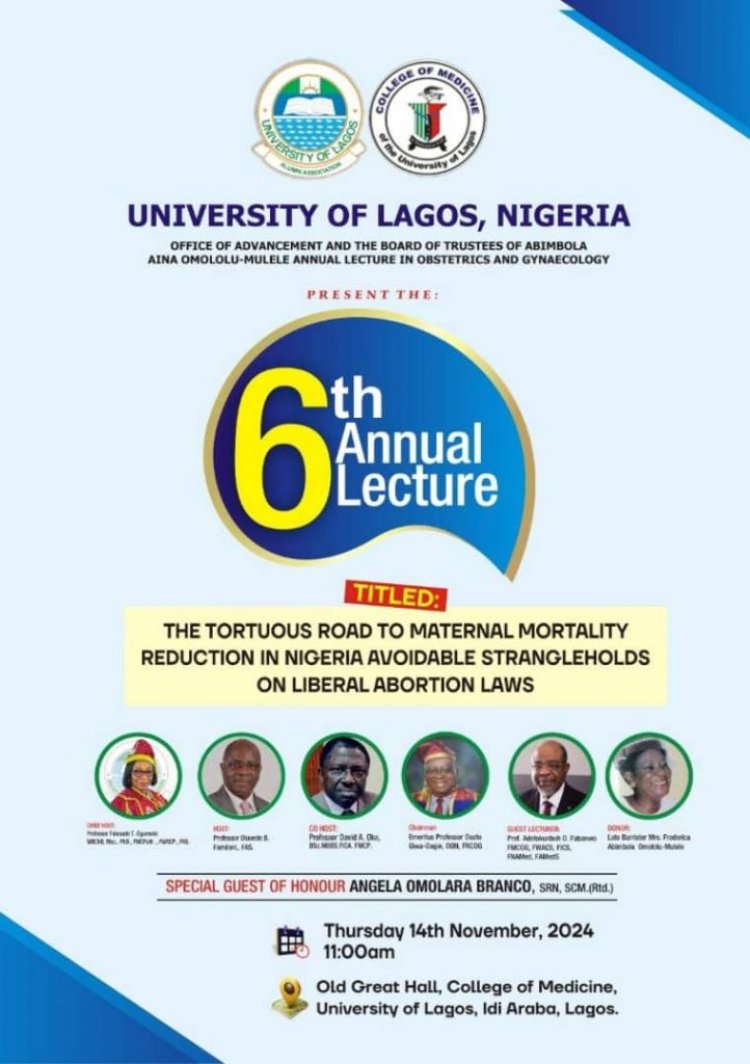UNILAG Hosts 6th Annual Lecture on Reducing Maternal Mortality in Nigeria
UNILAG in partnership with the Board of Trustees of the Abimbola Aina Omololu-Mulele Annual Lecture in Obstetrics and Gynaecology, will host its 6th annual lecture focusing on maternal mortality reduction in Nigeria. The lecture, titled "The Tortuous Road to Maternal Mortality Reduction in Nigeria: Avoidable Strangleholds on Liberal Abortion Laws,"

University of Lagos (UNILAG), in partnership with the Board of Trustees of the Abimbola Aina Omololu-Mulele Annual Lecture in Obstetrics and Gynaecology, will host its 6th annual lecture focusing on maternal mortality reduction in Nigeria. The lecture, titled "The Tortuous Road to Maternal Mortality Reduction in Nigeria: Avoidable Strangleholds on Liberal Abortion Laws," is scheduled for Thursday, November 14, 2024, at 11:00 a.m. in the Old Great Hall, College of Medicine, UNILAG, Idi Araba, Lagos.

Professor Adetokunbo Olusegun Fabamwo, the Chief Medical Director of the Lagos State University Teaching Hospital, will deliver the lecture. A respected figure in obstetrics and gynaecology, Professor Fabamwo brings extensive expertise and insights into the challenges and solutions surrounding maternal mortality and the impact of restrictive abortion laws in Nigeria.
The event will be chaired by Emeritus Professor Osato Ona Frank Giwa-Osagie, OON, a Distinguished Professor of Obstetrics and Gynaecology with an illustrious career in maternal health. The lecture will also feature notable guests, including leading healthcare professionals and scholars, addressing the pressing need for reform and strategies to advance maternal health outcomes in the country.
UNILAG invites members of the university community and the general public to participate in this critical discussion on policies and practices that could pave the way toward safer maternal health services in Nigeria.

 UBA CHIDINMA
UBA CHIDINMA 



